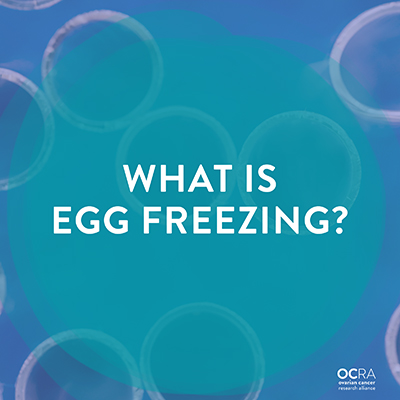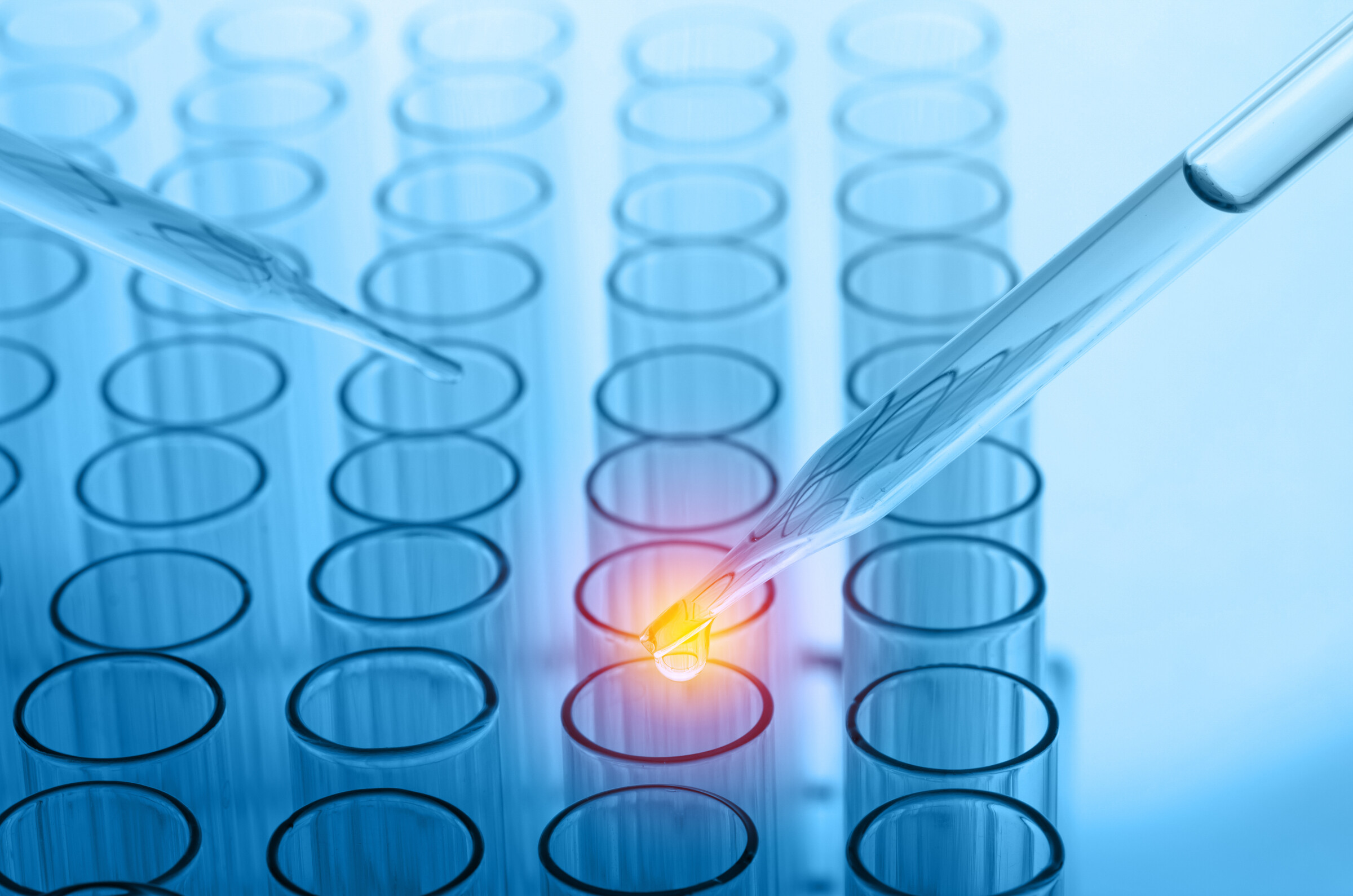
Fertility preservation is an important consideration for many young ovarian cancer patients and one common procedure is egg freezing.
Here are common questions and considerations to take into account while making those decisions.
What is Egg Freezing?
To start, the scientific name for a woman’s egg is called an oocyte. At birth, a woman has close to 6 million oocytes, but by the time she reaches puberty she’s down to about 200,000. As she ages, the quality and quantity of her oocytes diminish.
The process of egg freezing allows the oocytes to stay in their youthful form the moment they are vitrified, or flash-frozen in liquid nitrogen.
Egg Freezing Procedure
The procedure of egg freezing involves three main steps: ovarian stimulation, egg retrieval, and freezing. But the whole process will begin with an assessment of fertility health and long-term goals for the procedure, and then the actual timeline will depend on the ovaries themselves, not the physician’s or patient’s schedule.
Ovarian Stimulation
This begins on the second day of menstruation, and for the next 5-12 days, egg stimulation medication is used to stimulate the ovaries in order to produce multiple eggs rather than the single egg that typically develops.
The medication prescribed can be oral, where a patient takes a pill such as Clomid or Serophene for five days at the beginning of their menstrual cycle, or injectable, where the patient administers an injection, such as Gonal F and Menopur, every day for 7 – 12 days. In some cases, a combination method, using both oral and injectable medications, will be used.
Regardless of the approach, a physician will check the reaction of the ovaries to the medication throughout the treatment. This can include vaginal ultrasounds — a procedure that uses sound waves to create an image of the inside of the ovaries — to monitor the development of fluid-filled sacs, or follicles, where oocytes will mature.
Egg Retrieval
Once the physician determines that the ovaries have reacted well to the stimulation, usually two weeks into the menstrual cycle, the process moves to the egg retrieval stage. This is a quick, outpatient procedure done under sedation, and takes no more than 15-20 minutes, with additional time afterwards in recovery.
A common approach is transvaginal ultrasound aspiration, during which an ultrasound probe is inserted into the vagina to identify the follicles, and then a needle is guided into them.
Once the needle is in place, a suction device connected to the needle is used to remove the egg from the follicle. Multiple eggs will be removed during this procedure, and studies show that the more eggs retrieved, the better the chances of fertilization.
All in, the cycle and retrieval typically last less than two weeks, though it can take up to several months, depending on the patient’s preferences.
Freezing
Once the oocytes are retrieved, they’re quickly cooled to subzero temperatures and stored in tubes and carefully placed in a cryopreservation and vitrification dewar (container) at – 196 degrees Celsius for future use.
When the time comes, frozen eggs will be thawed, then fertilized with sperm to create embryos before the transfer back to the uterus. If the patient isn’t able to carry the pregnancy for any reason, the embryos can be transferred to the uterus of another woman to carry the pregnancy. This is called surrogacy with a gestational carrier.
If You Freeze Your Eggs, Will You Still Have a Period?
The short answer is yes. The process of egg retrieval and freezing doesn’t alter the building and shedding of the uterine lining. Around 12–14 days after the egg retrieval, a typical period will return, as it normally would, and won’t be affected long-term by the egg freezing process.
Egg Freezing Side Effects
The process of retrieving the eggs for freezing has some side effects. Symptoms include abdominal pain, bloating, nausea, vomiting and diarrhea for a few weeks after the procedure. Generally, they are not life threatening, but a physician should be contacted if discomfort or pain becomes severe.
Egg Freezing Price
The cost of egg retrieval and storage can vary depending on where you live. On average, the procedure can run between $8,000 and $15,000, averaging around $12,000, plus storage fees, which can range depending on how long the patient intends on keeping the eggs frozen. Many fertility centers offer a flat annual rate (generally not exceeding $2,000), but some offer long term discounts for 5- and 10-year packages. Many centers offer discounted rates to patients starting cancer treatment.
Is Egg Freezing Covered by Insurance?
In most cases, egg freezing is not medically necessary, and thus is not covered by most insurance plans.
Egg Freezing Age Limit
The age of the patient does have quite an impact on health and number of eggs available to be retrieved. Those over 37 will likely need more cycles of egg freezing to produce the same amount of viable eggs as a younger woman. Egg freezing is not recommended for women over the age of 38.
Egg Retrieval Before Chemotherapy
Depending on the type of ovarian cancer a patient has, it is possible that only one ovary will be removed during initial diagnostic surgery, making egg retrieval a viable option before starting chemotherapy. And in some cases, patients may have enough time before starting chemotherapy and radiotherapy treatment to have one or more cycles of ovarian stimulation and egg retrieval. This ensures that you have a reasonable number of eggs to freeze and therefore an increased chance of a future pregnancy.
Before beginning egg freezing, an oncologist must ensure that the procedure is safe at this stage of the cancer and treatment. Many ovarian cancer patients do only one cycle of stimulation before treatment, as more cycles can cause delays in necessary treatment.
Egg Retrieval After Chemotherapy
Generally speaking, egg retrieval after chemotherapy is less successful than before treatment. Oocytes tend to divide quickly, and are affected by the chemo. The cancer treatments can lead to the loss of hormones, causing some women to go into premature or early menopause. When possible, egg retrieval should be attempted before starting treatment.
Egg Freezing Success Rates
There are a lot of factors that go into the success rate of pregnancy using frozen eggs, including age at the time of egg retrieval and the number of mature eggs obtained from the procedure. Generally, the success rate per egg ranges between 3 – 9%, meaning the more healthy, mature eggs retrieved during the process, the better the chances at a healthy pregnancy down the line.
Not every egg collected can, or will, become a baby. Some eggs will not survive the freeze-thaw cycle, some will not fertilize and develop into embryos, and some may not implant after the transfer. It’s understood that women under 35 years of age generally have a higher chance of success.
Of course, egg freezing isn’t a patient’s only option. There are other methods to preserve fertility during ovarian cancer treatment, such as embryo cryopreservation. Learn more about options beyond egg freezing.
Egg Freezing Experiences
Jamie Davey was diagnosed with ovarian cancer when she was 26 years old. At that time, she wasn’t even sure if she wanted to have kids, but was forced to make a decision about retrieving and storing her eggs. Read about Jamie’s experience with egg freezing.


